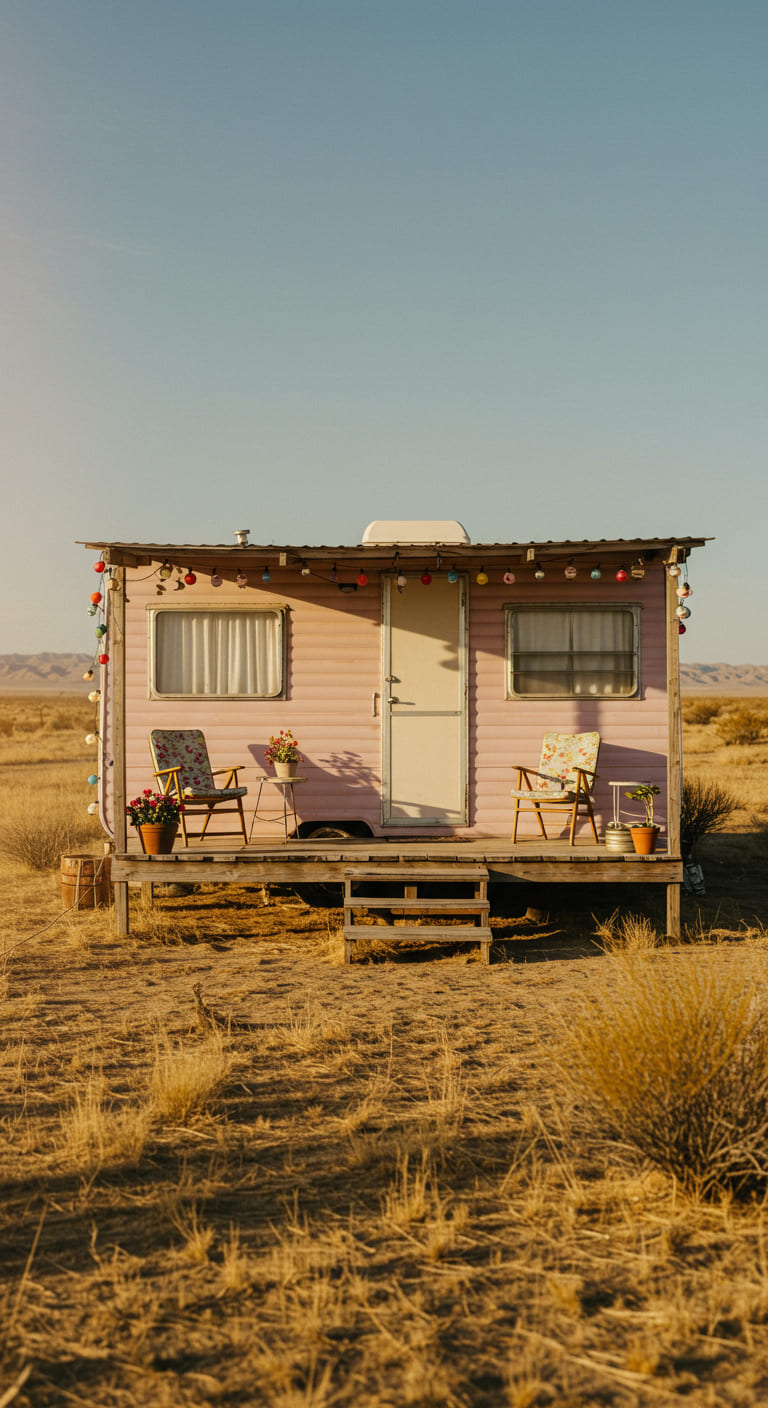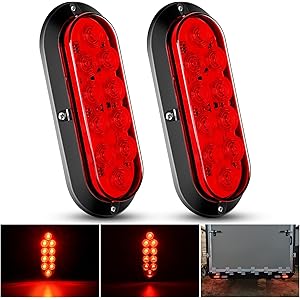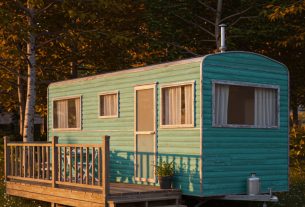When I first started exploring my options for a new living space, I found myself at a crossroads: should I invest in a trailer home or a modular home? Both options seemed appealing, but I needed to dig deeper to understand their differences and advantages. In this article, I’ll share my journey and insights to help you make an informed decision for your dream living space.
Understanding the Basics: What Are Trailer Homes and Modular Homes?
Before diving into the differences, let’s clarify what each type of home entails.
What is a Trailer Home?
A trailer home, often referred to as a mobile home, is a prefabricated structure built on a permanent chassis. These homes are designed to be movable, allowing for easy relocation. They come in various sizes and layouts, catering to different lifestyle needs. In many cases, they are placed in mobile home parks or on private land.
What is a Modular Home?
On the other hand, a modular home is built in sections (modules) in a factory setting. These sections are then transported to the building site, where they are assembled on a permanent foundation. Modular homes are constructed to meet the same building codes and standards as traditional homes, making them a popular choice for those seeking a permanent residence.
Key Differences: Trailer Homes vs. Modular Homes
Now that we have a basic understanding of both home types, let’s explore their key differences.
Construction Quality
One of the most significant distinctions between trailer homes and modular homes is their construction quality.
- Trailer Homes: Typically built using lighter materials, trailer homes may not adhere to the same building codes as modular homes. This can lead to concerns about durability and safety, especially in extreme weather conditions.
- Modular Homes: Built to the same standards as traditional homes, modular homes are often constructed with high-quality materials and superior craftsmanship. They can withstand harsher weather conditions and are generally more energy-efficient.
Cost Considerations
Cost is always a crucial factor when making a housing decision. Here’s how trailer homes and modular homes compare.
- Trailer Homes: Generally, trailer homes are more affordable upfront. They can be a great option for those on a tight budget or looking for a temporary living situation.
- Modular Homes: While modular homes may have a higher initial cost, they often provide better long-term value. Their durability and energy efficiency can lead to lower maintenance and utility costs over time.
Customization Options
Customization is essential for many homebuyers, and the options available can influence your decision.
- Trailer Homes: Customization options may be limited, with standard layouts and designs dominating the market.
- Modular Homes: Modular homes offer a range of customization options, from floor plans to materials and finishes. This flexibility allows you to create a space that truly reflects your personal style and needs.
Resale Value
Considering resale value is crucial for long-term investment.
- Trailer Homes: These homes typically depreciate in value over time, similar to vehicles. This can make them less appealing as a long-term investment.
- Modular Homes: In contrast, modular homes tend to retain their value better, often appreciating over time. This can make them a more attractive option for those looking to build equity.
Living Experience
The overall living experience can also differ significantly between the two home types.
- Trailer Homes: Often located in mobile home parks, trailer homes may lack privacy and space. Community rules and regulations can also impact your living experience.
- Modular Homes: Typically situated on private land, modular homes offer more privacy and the flexibility to create outdoor living spaces. This can enhance your overall quality of life.
Comparing Pros and Cons
To make a well-rounded decision, it’s essential to weigh the pros and cons of each option.
Pros and Cons of Trailer Homes
- Pros:
- Lower initial cost
- Mobility
- Quick setup
- Cons:
- Lower resale value
- Limited customization options
- Potential safety and durability concerns
Pros and Cons of Modular Homes
- Pros:
- High-quality construction
- Better resale value
- Extensive customization options
- Cons:
- Higher upfront cost
- Longer setup time
Case Studies: Real-Life Experiences
To further illustrate the differences between trailer homes and modular homes, let’s explore a couple of real-life case studies.
Case Study 1: The Johnson Family’s Trailer Home Experience
The Johnson family decided to purchase a trailer home due to its affordability. While they loved the idea of having a home of their own, they quickly encountered challenges. Living in a mobile home park meant limited privacy and space. Additionally, they faced issues with insulation, resulting in high heating costs during winter months. After three years, they found it difficult to sell their home due to depreciation, ultimately leading them to seek alternative living arrangements.
Case Study 2: The Smiths’ Modular Home Journey
The Smith family opted for a modular home after extensive research. While their initial investment was higher, they were thrilled with the quality of construction and customization options available. The family designed a spacious layout with energy-efficient features, which led to lower utility bills. After five years, they decided to sell their home and were pleasantly surprised to find that its value had appreciated significantly, allowing them to upgrade to their dream home.
Statistics to Consider
As I continued my research, I came across some compelling statistics that may influence your decision.
- According to the U.S. Census Bureau, the average price of a new manufactured home (trailer) was around $100,000, while the average price of a new modular home was approximately $250,000.
- A study by the National Association of Home Builders found that modular homes can save homeowners up to 20% on energy costs compared to traditional homes.
- Research by the American Housing Survey indicates that modular homes typically appreciate in value by 3-5% annually, while trailer homes often depreciate.
Making the Choice: Which is Right for You?
Ultimately, the choice between a trailer home and a modular home comes down to your individual needs and circumstances. Here are some factors to consider:
- Budget: If you’re on a tight budget and need something temporary, a trailer home may be appealing.
- Long-Term Plans: If you’re looking for a permanent residence that appreciates in value, a modular home may be the better option.
- Customization: If personalizing your space is a priority, modular homes offer far more flexibility.
- Living Environment: Consider the type of community you want to live in. Trailer homes often come with community regulations, while modular homes are usually placed on private land.
Conclusion: Your Dream Living Space Awaits
As I reflect on my journey of exploring trailer homes and modular homes, I realize that both have their own unique advantages and challenges. The decision ultimately boils down to your budget, long-term goals, and personal preferences.
For those seeking affordability and mobility, a trailer home may be an excellent choice. However, if you’re looking for quality construction, customization options, and long-term investment potential, a modular home is likely the better fit.
Whichever option you choose, remember that your living space should reflect your dreams and lifestyle. Take the time to research and weigh your options carefully, and you’ll be well on your way to finding your perfect home!
FAQs
1. Are trailer homes and modular homes the same as manufactured homes?
Yes, trailer homes are often referred to as manufactured homes. The term “trailer home” is becoming less common, with the industry leaning towards “manufactured home” or “mobile home.” Modular homes, however, are distinct from manufactured homes as they are built to meet local building codes and are placed on a permanent foundation.
2. How long does it take to build a modular home?
The construction of a modular home typically takes a few months, depending on the complexity of the design and the builder’s schedule. However, the actual assembly on-site can take as little as a few days once the modules are delivered.
3. Can I finance a modular home like a traditional house?
Yes, most lenders treat modular homes similarly to traditional homes when it comes to financing. You can obtain a mortgage for a modular home, provided it is built on a permanent foundation.
If you found this article helpful, I encourage you to share it with friends and family and sign up for our newsletter for more insights on homeownership and living space options!
Nilight 6 Inch Oval Red LED Trailer Tail Light Surface Mount 2PCS 10 LEDs Waterproof Stop Brake Turn Trailers Lights for Truck RV Boat Bus Lorry Camper Van Caravan
$18.99 (as of November 15, 2025 07:52 GMT -03:00 - More infoProduct prices and availability are accurate as of the date/time indicated and are subject to change. Any price and availability information displayed on [relevant Amazon Site(s), as applicable] at the time of purchase will apply to the purchase of this product.)
Sign up for our newsletter and stay up to date with exclusive news
that can transform your routine!





